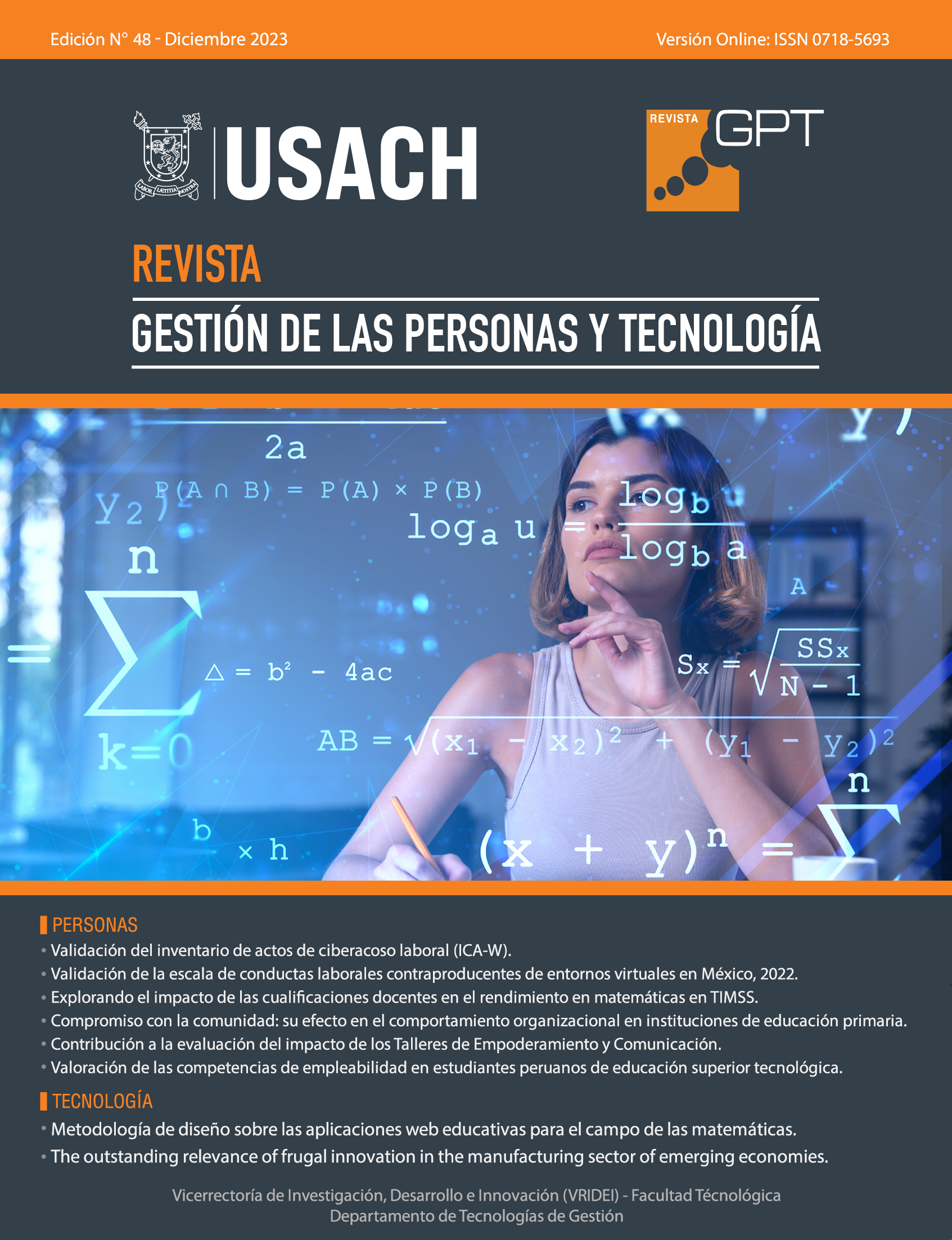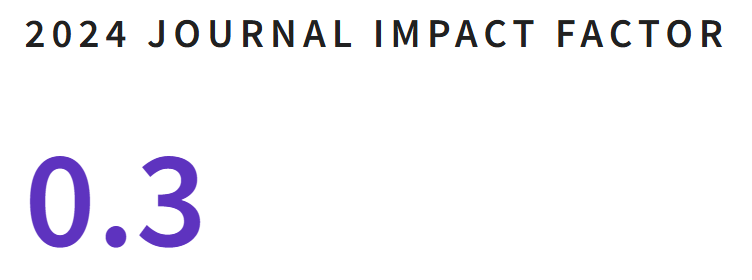Design methodology on educational web applications for the field of mathematics
DOI:
https://doi.org/10.35588/gpt.v16i48.6506Keywords:
ICT, educational technology, web application, design methodology, mathAbstract
This study proposes the creation and use of the Design methodology on Educational Web Applications for the Field of Mathematics (DAECM) to build the web application on depreciation. The objective of this mixed research is to analyze the perceptions of the students about the use of this technological tool. The participants are 25 students who took the Information and Communication Technologies course at the National Autonomous University of Mexico during the 2023-2 school year. The DAECM methodology facilitated the construction of the educational web application on depreciation through the stages Analysis of the mathematical educational context, Analysis of web programming languages, Content design, Aesthetics and Evaluation. The results of this mixed research indicate that the educational web application is useful, facilitates the personalization of learning through simulators, favors the creation of a pleasant virtual environment, allows the education during the COVID-19 post-pandemic and encourages the learning of the math. This study recommends the incorporation of technological tools such as web applications because teachers can create new virtual spaces that help the students during the learning process. In conclusion, educators can use the DAECM methodology to update educational practices and innovate the course activities through the planning and construction of web applications.
Downloads
References
Annamalai, N., Uthayakumaran, A. & Zyoud, S. H. (2023). High school teachers’ perception of AR and VR in English language teaching and learning activities: A developing country perspective. Education and Information Technologies, 28, 3117-3143. https://doi.org/10.1007/s10639-022-11275-2
Chuang, C., & Jamiat, N. (2023). A systematic review on the effectiveness of children’s interactive reading applications for promoting their emergent literacy in the multimedia context. Contemporary Educational Technology, 15(2), ep412. https://doi.org/10.30935/cedtech/12941
Farkish, A., Bosaghzadeh, A., & Amiri, S. H. (2023). Evaluating the Effects of Educational Multimedia Design Principles on Cognitive Load Using EEG Signal Analysis. Education and Information Technologies, 28, 2827-2843. https://doi.org/10.1007/s10639-022-11283-2
Huang, W. (2023). Deep Learning Becomes a Reality when Emerging Technologies Meet Learning Design. TechTrends, 67, 178-188. https://doi.org/10.1007/s11528-022-00778-x
Ioseliani, A. D., Orekhovskaya, N. A., Svintsova, M. N., Panov, E. G., Skvortsova, E. M., & Bayanova, A. R. (2023). Bibliometric analysis of articles on digital educational environments. Contemporary Educational Technology, 15(3), ep426. https://doi.org/10.30935/cedtech/13100
Li, S., Craig, S. D., & Schroeder, N. L. (2023). Lessons Learned from Online Learning at Scale: a Study of Exemplar Learning Organizations. TechTrends, 67, 84-97. https://doi.org/10.1007/s11528-022-00761-6
Lowell, V. L., & Yang, M. (2023). Authentic Learning Experiences to Improve Online Instructor’s Performance and Self-Efficacy: The Design of an Online Mentoring Program. TechTrends, 67, 112–123. https://doi.org/10.1007/s11528-022-00770-5
Pham, A. T. (2023). The impact of gamified learning using Quizizz on ESL learners’ grammar achievement. Contemporary Educational Technology, 15(2), ep410. https://doi.org/10.30935/cedtech/12923
Medero, G. S., Pastor Albaladejo, G., Cuevas Lanchares, J. C., Soto Sainz, O., Pérez Hernanz, J., García Solana, M. J.,
Resina de la Fuente, J., & Mairal Medina, P. (2023). Collaborative design of audio-visual materials in Political Science and Administration. Contemporary Educational Technology, 15(3), ep427. https://doi.org/10.30935/cedtech/13101
Multazam, M., Syahrial, Z. & Rusmono, R. (2023). Development of learning models in web programming courses with computer-based learning tutorials. Turkish Online Journal of Distance Education, 24(2), 232-244. https://dergipark.org.tr/en/pub/tojde/issue/76597/1081507
Mutya, R. C., & Masuhay, A. L. (2023). The extent of implementation of blended learning in senior high school science education vis-a-vis students’ academic achievement. Turkish Online Journal of Distance Education, 24(2), 47-63. https://dergipark.org.tr/en/pub/tojde/issue/76597/1107412
Nikoceviq-Kurti, E. (2023). Uncovering challenges and opportunities for improvements of distance learning in teacher education: kosovo’s experience. Turkish Online Journal of Distance Education, 24(2), 245-260. https://dergipark.org.tr/en/pub/tojde/issue/76597/1088388
Rehman, S. U., Elshareıf, E. E. & Khan, F. (2023). New learners’ satisfaction with online education: a longitudinal study. Turkish Online Journal of Distance Education, 24(2), 272-283. https://dergipark.org.tr/en/pub/tojde/issue/76597/1010050
Richardson, J. C., Castellanos-Reyes, D., & Janakiraman, S. (2023). The Process of Developing a Digital Repository for Online Teaching Using Design-Based Research. TechTrends, 67, 217-230. https://doi.org/10.1007/s11528-022-00795-w
Romero-Rodríguez, L. (2023). Engaging future engineers: the case study of a serious game implementation. Education and Information Technologies, 28, 2909-2939. https://doi.org/10.1007/s10639-022-11279-y
Salas-Rueda, R. A., & Alvarado-Zamorano, C. (2022). Design of creative virtual spaces through the use of a web application during the educational process about bank savings. Creativity Studies, 15(2), 299-315. https://doi.org/10.3846/cs.2022.12304
Sipitanos, K. (2023). Students’ discourses during the online distance learning in the first wave of the covid19 pandemic: an action research with students as co-researchers. Turkish Online Journal of Distance Education, 24(2), 308-324. https://dergipark.org.tr/en/pub/tojde/issue/76597/967406










